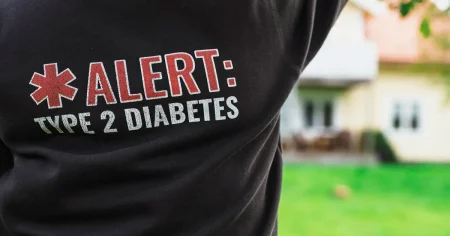The Resurgence of Respiratory Illnesses in a Post-Pandemic World
The winter season has ushered in a familiar wave of respiratory illnesses, including influenza, COVID-19, and mycoplasma. While the patterns of these infections have been somewhat disrupted by the COVID-19 pandemic, certain trends are emerging. Influenza cases have doubled in recent weeks, signaling the start of the flu season. Although typically peaking in February pre-pandemic, influenza’s resurgence has started later this year, suggesting a potential peak in January or February. The severity and precise timing of the peak remain uncertain.
Concurrent with the influenza upswing, COVID-19 cases are also expected to rise following the holiday season. After a period of relative stability since the end of summer, health authorities anticipate an increase in COVID-19 infections, potentially exacerbated by the resumption of school and work activities in the new year. This predictable pattern aligns with the increased transmission typically observed for respiratory illnesses during these periods of intensified social interaction.
Amidst these anticipated increases, there is a glimmer of positive news regarding mycoplasma infections. After an unprecedented surge in cases, reaching an all-time high, there are indications that the spread of this bacterial infection may have plateaued or even begun to decline. Mycoplasma infections, characterized by persistent cough and fever, can range in severity, with most cases resolving spontaneously. However, some individuals may require antibiotic treatment or even hospitalization.
Navigating the Holiday Season Amidst Respiratory Illness Concerns
As families and communities gather for holiday celebrations, health experts emphasize the importance of responsible behavior to mitigate the spread of these illnesses. Individuals experiencing symptoms are urged to stay home and avoid contact with others, especially vulnerable populations like the elderly and young children. This precaution is crucial in protecting those most susceptible to severe complications.
Vaccination remains a vital tool in combating influenza and COVID-19, particularly for individuals aged 65 and older and those belonging to high-risk groups. Even with the holidays approaching, there is still ample opportunity to receive vaccination and bolster protection for oneself and loved ones. Immunity typically develops within a week of vaccination, providing a timely defense against these viruses. However, for individuals younger than 65 and not considered high-risk, repeat vaccination is not currently recommended due to the vaccine’s limited efficacy against infection in this demographic. The risk of severe illness from COVID-19 is generally low in this group, and infection, while likely, is not expected to result in severe outcomes.
The Evolving Landscape of Respiratory Infections
The current landscape of respiratory illnesses reflects a complex interplay of factors, including the lingering effects of the COVID-19 pandemic, seasonal variations, and the unique characteristics of each pathogen. The delayed onset of the influenza season, the anticipated resurgence of COVID-19, and the receding wave of mycoplasma infections all contribute to this dynamic picture. Health authorities continue to monitor these trends closely, adapting recommendations and strategies to address the evolving challenges.
Individual Responsibility and Public Health Measures
The ongoing circulation of respiratory illnesses underscores the importance of individual responsibility and adherence to public health guidelines. Practicing good hygiene, such as frequent handwashing and respiratory etiquette, remains crucial in limiting the spread of these infections. Staying informed about the latest recommendations and seeking medical advice when necessary are also essential components of a proactive approach to protecting individual and community health.
Vaccination Strategies and Risk Assessment
Vaccination strategies continue to be refined based on emerging data and the specific characteristics of each virus. The recommendation for vaccination against influenza and COVID-19 for older adults and high-risk individuals reflects the heightened vulnerability of these groups to severe complications. For younger, lower-risk individuals, the current assessment suggests that the benefits of repeat vaccination do not outweigh the risks. This approach is continuously reevaluated as new information becomes available.
Looking Ahead: Preparedness and Adaptation
As we move forward, preparedness and adaptability will be key to navigating the challenges posed by respiratory illnesses. Continued vigilance, including monitoring disease trends, promoting responsible behaviors, and refining vaccination strategies, will be essential in mitigating the impact of these infections on individuals and communities. The lessons learned from the COVID-19 pandemic, coupled with ongoing research and public health initiatives, will inform future approaches to managing respiratory illnesses in an ever-changing environment.














